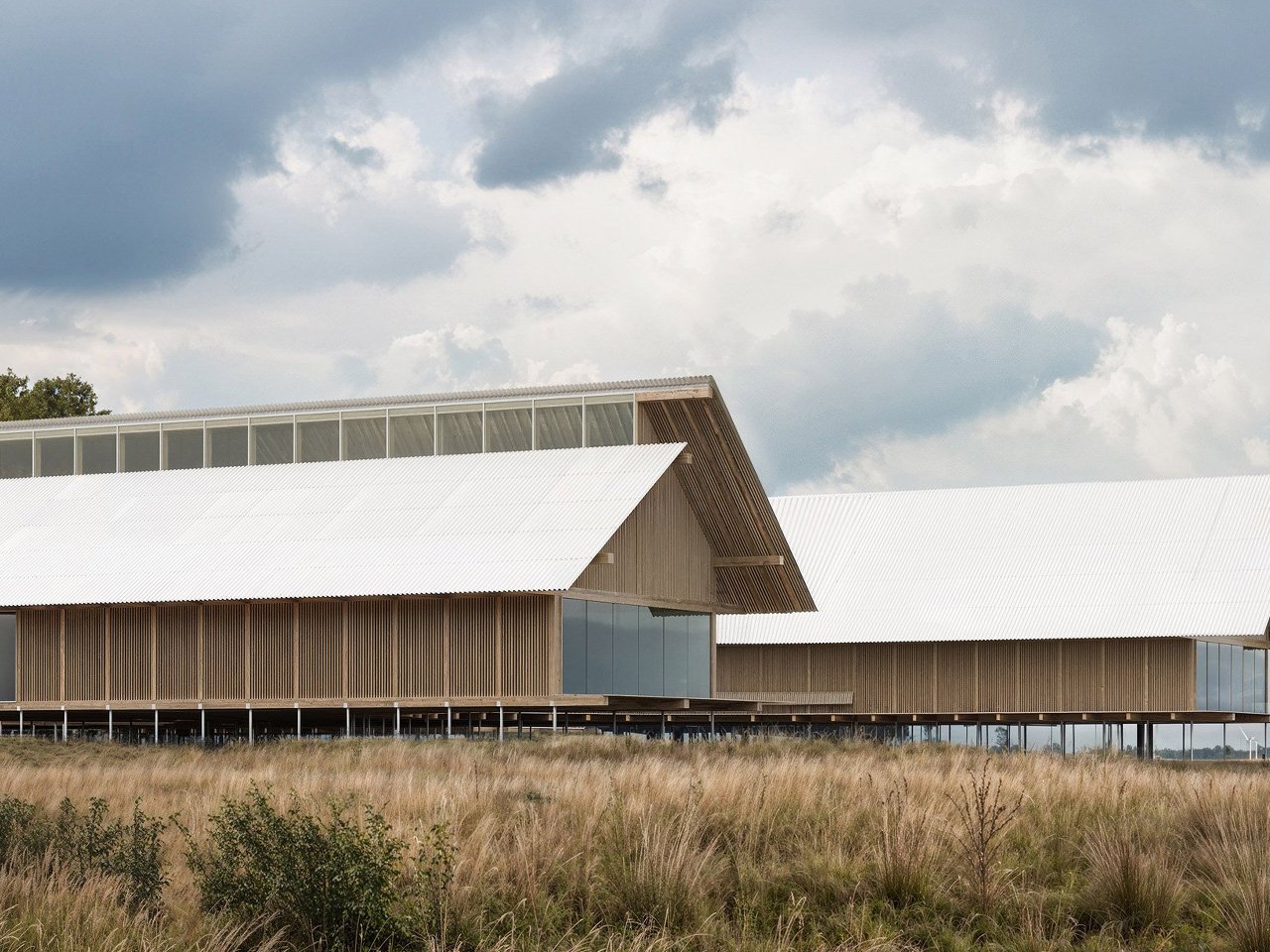Danish architecture studio COBE has revealed its thoughtful design for Museum Wegner, a new cultural institution that will celebrate the life and legacy of Hans J. Wegner, the legendary furniture designer known worldwide as “the Master of the Chair.” Set to rise in the marshlands outside Tönder—Wegner’s childhood hometown where he first trained as a carpenter—the museum represents both an architectural achievement and a poignant homecoming for Denmark’s design heritage.
The 5,000-square-meter museum will transform a pair of historic farm buildings dating back to 1445, weaving together centuries of craftsmanship tradition with contemporary architectural innovation. “The ambition with Museum Wegner is to pay tribute to an absolute legend in Danish design,” the studio explains, noting that Denmark currently has only two museums dedicated to Danish design—a gap this new institution aims to fill. The project’s significance extends beyond mere exhibition space; it embodies the very principles that made Wegner’s furniture internationally acclaimed.
Designer: Studio Cobe
Design Philosophy Rooted in Craftsmanship
COBE’s approach mirrors Wegner’s own design philosophy, emphasizing honest materials, visible construction methods, and the seamless integration of sculptural form with everyday function. The design strategy centers on what they call “honest use of materials,” employing timber—Wegner’s preferred medium—throughout the contemporary additions. Traditional building techniques feature prominently, establishing clear connections between form and function that echo Wegner’s furniture designs, including classics like the Wishbone Chair and The Chair, famously used in the 1960 Kennedy-Nixon presidential debates.
The architectural intervention treats the historic farm buildings with careful reverence, preserving their essential character while adapting them for museum use. The new wood-framed structures will be raised on slender footings, creating a dialogue between old and new while respecting the site’s agricultural heritage. The timber extensions don’t compete with the existing structures but rather complement them, reflecting Wegner’s ability to blend iconic, sculptural design with everyday practicality—a philosophy that made his work internationally recognized.
A Homecoming for Danish Design Legacy
Located in Tönder, the museum’s setting holds deep personal significance, as this southwestern Danish town shaped Wegner’s early understanding of craftsmanship and materials, making it the ideal location to showcase his evolution from a local carpenter’s apprentice to international design icon. Selected for the project in 2024, COBE is currently developing detailed designs while the client secures funding. The studio, founded by Dan Stubbergaard in 2006, brings significant experience in culturally sensitive projects, including Copenhagen’s Opera Park and various heritage transformations across Scandinavia.
Museum Wegner promises to become more than a traditional exhibition space. As COBE envisions it, the building itself will serve as an architectural tribute that engages with nature, context, and the designer’s enduring legacy. By celebrating both the aesthetic and functional aspects of Danish craftsmanship, the museum will reinforce the cultural and historical significance of its site while introducing new generations to Wegner’s revolutionary approach to furniture design. Through this thoughtful architectural homage, Denmark will soon have a fitting memorial to one of its greatest design exports, housed in a building that embodies the very principles Wegner championed throughout his remarkable career.
The post Historic Danish Farm Transformed Into Museum Celebrating Furniture Legend Hans J. Wegner first appeared on Yanko Design.

